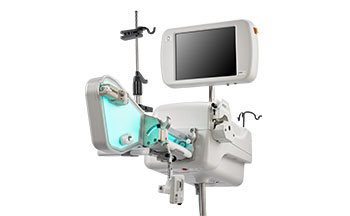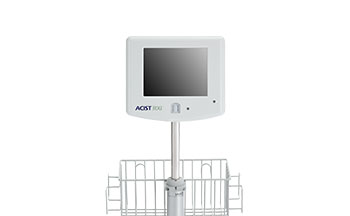Cardiovascular
disease
Cardiovascular
disease
Cardiovascular disease (CVD) is the leading cause of death worldwide, accounting for more than 17.9 million deaths each year. CVD includes stroke and several conditions affecting the heart and blood vessels. The most common type of cardiovascular disease is coronary artery disease (CAD), a hardening or clogging of the arteries caused by a buildup of cholesterol and fatty deposits, or plaques. This buildup can restrict blood flow to the heart muscle, cut off blood supply to the heart and result in a heart attack.
Cardiac catheterization, which uses a narrow catheter inserted into the heart via an artery or vein under x-ray guidance, is one of the most widely performed cardiac procedures used to diagnose and treat CAD and other types of CVD.
ACIST. It’s how you know.
Learn how ACIST technologies promote optimal patient care for cardiac catheterization and angiography by providing the ability to accurately visualize, assess, diagnose and treat CVD.
References
- Glowny M. and Resnic F. What to expect during cardiac catheterization. Circulation. Feb 2012. https://doi.org/10.1161/CIRCULATIONAHA.111.025916
- Harvard Health Publishing. Tests your doctor may order to determine whether you have heart disease. June 2018. https://www.health.harvard.edu/heart-health/tests-your-doctor-may-order-to-determine-whether-you-have-heart-disease
- Manda Y and Baradhi K. Cardiac Catheterization, Risks and Complications. StatPearls. Nov. 13, 2018. https://www.ncbi.nlm.nih.gov/books/NBK531461/
- S. National Library of Medicine, Medline Plus. Coronary Artery Disease. https://medlineplus.gov/coronaryarterydisease.html
- World Health Organization. Cardiovascular Diseases. https://www.who.int/health-topics/cardiovascular-diseases/.


